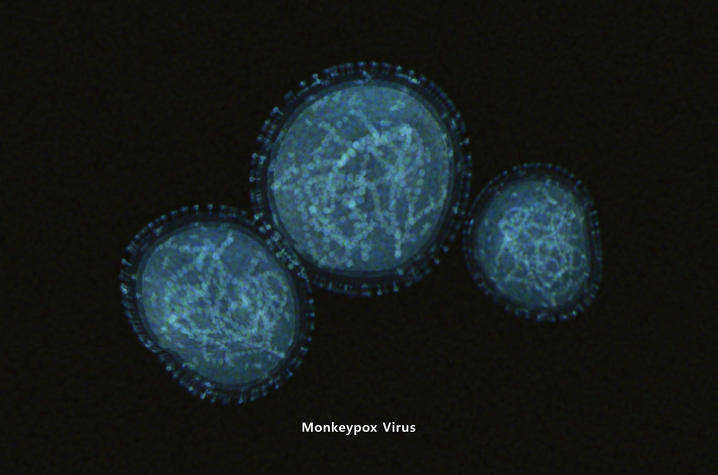What you should know about monkeypox

The University of Kentucky Public Relations and Strategic Communications Office provides a weekly health column available for use and reprint by news media. This week's column is by Ilhem Messaoudi, Ph.D., a UK College of Medicine immunology and virology expert who serves as chair of the Department of Microbiology, Immunology, and Molecular Genetics.
LEXINGTON, Ky. (Aug. 4, 2022) — The World Health Organization recently declared monkeypox a public health emergency of international concern as the virus is now spreading throughout North America and Europe where it is not usually found.
As of Aug. 1, there are more than 5,800 confirmed cases of monkeypox in the U.S. and eight of these cases have been confirmed in Kentucky. While the risk for Kentuckians remains relatively low, everyone should be vigilant. There are steps you can take to protect yourself and limit the spread.
How monkeypox spreads:
Monkeypox is spread via close prolonged contact with body fluids/lesion materials, for example, by caring for or interacting closely with someone exhibiting symptoms, getting bit by an infected animal or manipulating sick animals, or handling contaminated materials. It can be spread via the respiratory route, mucosal route or through broken skin.
Monkeypox symptoms:
The incubation period is often seven to 14 days but can be as long as 21 days. Symptoms first start with chills, fever, aches and swollen lymph nodes. This is followed by the appearance of a rash that progresses to blisters.
Monkeypox is contagious once the person has developed symptoms and is considered to be infectious until the rash has healed, all scabs separate, and a fresh layer of skin is formed.
To prevent the spread of monkeypox:
- Avoid close, skin-to-skin contact with people who have a rash that looks like monkeypox.
- Avoid contact with objects and materials that a person with monkeypox has used.
- Wash your hands often with soap and water or use an alcohol-based hand sanitizer.
- If you find yourself in an area where monkeypox has been detected, avoid contact with animals that are sick or found dead.
- For health care workers caring for monkeypox patients, PPE including respiratory protection and patient isolation are needed.
- Vaccines are available and recommended for people who have been exposed to monkeypox and people who are at high risk of being exposed to monkeypox.
People with a new or unexplained rash or other monkeypox symptoms or have had close personal contact with someone who has monkeypox should visit a health care provider to get tested and determine if they are eligible to receive a vaccine.
If your test result is positive, stay isolated and observe prevention practices until all symptoms are gone. While most people recover in two to four weeks without treatment, antiviral treatments may be available for patients that are more likely to get severely ill.
As the state’s flagship, land-grant institution, the University of Kentucky exists to advance the Commonwealth. We do that by preparing the next generation of leaders — placing students at the heart of everything we do — and transforming the lives of Kentuckians through education, research and creative work, service and health care. We pride ourselves on being a catalyst for breakthroughs and a force for healing, a place where ingenuity unfolds. It's all made possible by our people — visionaries, disruptors and pioneers — who make up 200 academic programs, a $476.5 million research and development enterprise and a world-class medical center, all on one campus.




